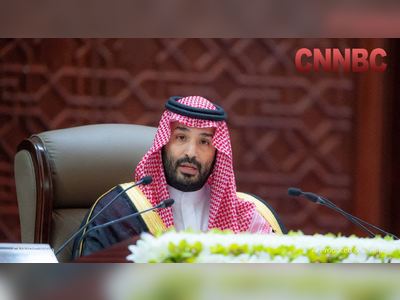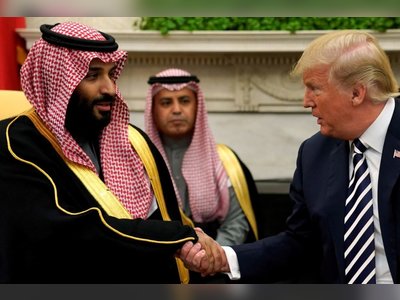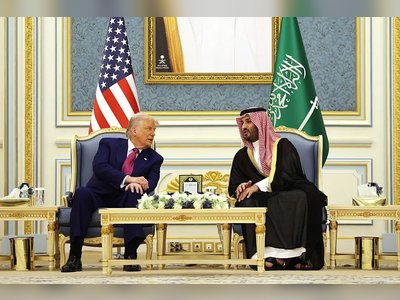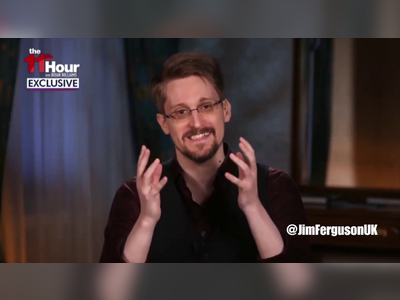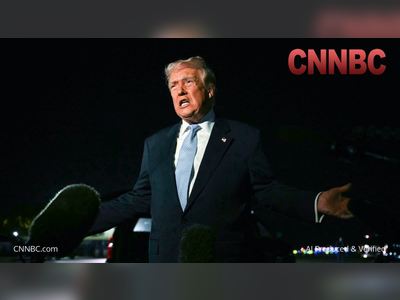Saudi Crown Prince Meets Trump in Washington to Deepen Defence, AI and Nuclear Ties
Mohammed bin Salman’s first U.S. trip since 2018 focuses on fighter-jets, artificial-intelligence and civilian nuclear cooperation
Saudi Arabia’s Crown Prince Mohammed bin Salman arrived in Washington for talks with U.S. President Donald Trump, marking his first visit to the United States since 2018 and signalling a fresh era in bilateral engagement.
The agenda covers a wide spectrum: strengthening defence agreements, accessing leading-edge artificial-intelligence technology and advancing a civilian nuclear energy programme.
President Trump confirmed that the United States will approve the sale of advanced F-35 fighter jets to Saudi Arabia, responding affirmatively when asked about the deal.
The announcement accompanies broader expectations of major investment pledges from Riyadh into American technology and infrastructure, following the kingdom’s earlier promise to invest around US$600 billion.
The sale of F-35s represents a significant shift in U.S. policy and will reshape security dynamics in the Middle East.
Beyond arms, the Saudi agenda includes heavy emphasis on artificial-intelligence chips, data centres and other technologies that will support the kingdom’s industrial diversification under the Vision 2030 framework.
Saudi officials are also negotiating a civilian nuclear-cooperation agreement with the United States, a move that would grant Riyadh access to U.S. nuclear technology and strengthen its energy transition strategy.
U.S. officials remain cautious, however, given unresolved issues over uranium enrichment and spent-fuel reprocessing in prior discussions.
The defence dimension of the visit builds on decades-long oil-for-security ties between Washington and Riyadh but comes at a sensitive moment.
The United States has conditioned parts of its defence cooperation on Saudi Arabia advancing normalisation with Israel—a process that remains stalled.
Saudi Arabia, for its part, insists that formal ties with Israel depend on progress toward a Palestinian state.
Analysts suggest that the meeting may yield an executive‐order style security guarantee rather than a full treaty requiring congressional approval.
This visit comes amid what analysts describe as a “page turned” in U.S.–Saudi relations following the 2018 killing of journalist Jamal Khashoggi, a watershed moment that had strained bilateral ties.
Saudi-based observers say both capitals are now seeking to chart a forward-looking agenda focused on technology, investment and security, rather than legacy controversies.
The visit underlines the growing strategic priority Saudi Arabia assigns to technology and defence as it realigns its global posture.
For Washington, the deepening partnership offers an opportunity to shift some dependence away from Chinese technology and cultivate a Gulf partner that can serve as a regional security anchor.
Both sides face hard choices ahead: Riyadh must deliver on promised investment and structural reforms, and Washington must reconcile its arms-transfer rules, regional security commitments—particularly around Israel—and concerns about non-proliferation.
As the talks proceed, all eyes will be on the detailed content of agreements and the mechanisms that Washington and Riyadh will deploy to manage implementation.
The outcome may shape not just U.S.–Saudi ties but the balance of power, technology and energy in the Middle East for years to come.
The agenda covers a wide spectrum: strengthening defence agreements, accessing leading-edge artificial-intelligence technology and advancing a civilian nuclear energy programme.
President Trump confirmed that the United States will approve the sale of advanced F-35 fighter jets to Saudi Arabia, responding affirmatively when asked about the deal.
The announcement accompanies broader expectations of major investment pledges from Riyadh into American technology and infrastructure, following the kingdom’s earlier promise to invest around US$600 billion.
The sale of F-35s represents a significant shift in U.S. policy and will reshape security dynamics in the Middle East.
Beyond arms, the Saudi agenda includes heavy emphasis on artificial-intelligence chips, data centres and other technologies that will support the kingdom’s industrial diversification under the Vision 2030 framework.
Saudi officials are also negotiating a civilian nuclear-cooperation agreement with the United States, a move that would grant Riyadh access to U.S. nuclear technology and strengthen its energy transition strategy.
U.S. officials remain cautious, however, given unresolved issues over uranium enrichment and spent-fuel reprocessing in prior discussions.
The defence dimension of the visit builds on decades-long oil-for-security ties between Washington and Riyadh but comes at a sensitive moment.
The United States has conditioned parts of its defence cooperation on Saudi Arabia advancing normalisation with Israel—a process that remains stalled.
Saudi Arabia, for its part, insists that formal ties with Israel depend on progress toward a Palestinian state.
Analysts suggest that the meeting may yield an executive‐order style security guarantee rather than a full treaty requiring congressional approval.
This visit comes amid what analysts describe as a “page turned” in U.S.–Saudi relations following the 2018 killing of journalist Jamal Khashoggi, a watershed moment that had strained bilateral ties.
Saudi-based observers say both capitals are now seeking to chart a forward-looking agenda focused on technology, investment and security, rather than legacy controversies.
The visit underlines the growing strategic priority Saudi Arabia assigns to technology and defence as it realigns its global posture.
For Washington, the deepening partnership offers an opportunity to shift some dependence away from Chinese technology and cultivate a Gulf partner that can serve as a regional security anchor.
Both sides face hard choices ahead: Riyadh must deliver on promised investment and structural reforms, and Washington must reconcile its arms-transfer rules, regional security commitments—particularly around Israel—and concerns about non-proliferation.
As the talks proceed, all eyes will be on the detailed content of agreements and the mechanisms that Washington and Riyadh will deploy to manage implementation.
The outcome may shape not just U.S.–Saudi ties but the balance of power, technology and energy in the Middle East for years to come.


